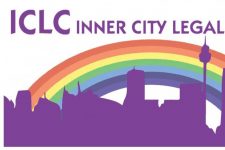Helping Trans Youth: An Interview with Inner City Legal Centre’s Hilary Kincaid

Sammi is an 18-year-old transgender woman who lives in Sydney’s Northern Beaches. She’s a keen photographer and a filmmaker.
“Like approximately 4 in 2,000 kids I was born into the wrong body,” Sammi explains. “With a birth certificate telling me that I was biologically male.”
At the age of 17, she began transitioning. In Australia, this isn’t an easy process to undertake, as there are laws that complicate the matter and it’s extremely expensive.
Access to treatment
Under Australian law, a teenager who has gender dysphoria is required to make an application to the Family Court, in order to access cross-sex hormones.
The treatment can be a lifeline for trans youth, who may become suicidal if they don’t obtain it.
However, the application process can be confusing and the help of a private lawyer can cost more than $20,000.
As Sammi points out, this comes on top of a long list of other costs: medical bills, endocrinologist fees and ongoing treatment. “The stress and pressure that is put on families is immense,” she adds.
The Special Medical Procedure service
Fortunately for Sammi, she was able to access a free service provided by the Inner City Legal Centre (ICLC) that helped her through the arduous Family Court system.
The Special Medical Procedure service is a state-wide project that’s been running since 2013 and helps trans teenagers and their parents with the court process.
But demand is growing. So the ICLC have just launched the Trans Law Reform campaign, which is raising funds to expand the service’s availability.
Make a donation
The campaign aims to raise $20,000, which will be used to continue the employment of a specialist solicitor, who can guide families through the often difficult court procedures.
But the initiative also has a focus on raising awareness about the need for law reform, so transgender youth are able to better access these lifesaving treatments.
The crowdfunding campaign coincides with Trans Awareness Month, which is designed to raise public consciousness about the rights of trans people.
The Inner City Legal Centre
This service that enables trans youth to have a better future has received praise amongst legal peers, and has led ICLC to be awarded the Community Legal Centre NSW Award at the Justice Awards in October of this year.
Based in Kings Cross, the ICLC has been providing legal services to the local community since 1980. Today, they’re the only specialist LGBTIQ legal centre in the state. And they also provide legal support to some of Sydney’s most disadvantaged people.
However, like many other community legal centres in the country, the ICLC is facing large funding cuts. The federal government is to cut around $35 million in funding to frontline legal services as of July next year.
In 2014, the Productivity Commission recommended an additional $200 million in funding a year for community legal assistance services, as they’re drastically underfunded.
Sydney Criminal Lawyers® spoke with Hilary Kincaid, the principal solicitor at the Inner City Legal Centre, about their campaign to expand this vital service so more transgender youth can access it.
What sort of issues do transgender youth face growing up in NSW today?
The issues that they face are access to medical treatment for transition. For medical transition – rather than social transition – there are three stages.
Stage one is blockers that delay the onset or progression of puberty. Stage two is cross-sex hormone treatment, so oestrogen or testosterone. And stage three is surgical intervention, which for a child under the age of 18 is really only going to include top surgery: that is a bilateral mastectomy and male chest reconstruction.
So not every young person is going to go through all of the stages, and they don’t necessarily go through the stages in that order.
For stage one treatment, there’s no requirement for court involvement if both parents are in support of the child getting the treatment. That law changed in the middle of 2013. There used to be a requirement for a court application.
For stage two treatment – which is the primary focus of our campaign – a court application is mandatory, regardless of whether both parents are in support.
Stage three treatment also requires a court application, if you’re under 18.
The ICLC has been providing the Special Medical Procedures application service for transgender teens free of charge since 2013. What does this service entail?
It entails advice, so one-off legal advice to parents and occasionally young people. And it involves representation and case work in the Family Court.
How many people do you provide this service to? And what’s the demand like?
Since the middle of 2013, we’ve probably had about 15 cases, opened and closed. And about 20 one-off advices. The demand this year has absolutely exploded. So now we have 20 open case files. And I would give advice probably once a week on average – once or twice a week.
What’s the alternative for a teenager who has gender dysphoria if they can’t access this treatment?
The alternative would be obtaining the treatment on the black market. The law is very clear that without the court application, any treatment is unlawful. So this would mean either obtaining the hormones themselves – and taking it without medical supervision – or being prescribed the hormones by a sympathetic medical practitioner.
But what if there’s an individual who can’t afford to access it through the legal system and isn’t prepared to obtain it on the black market. What sort of issues do they face?
The issues that they would face would be an increase in the intensity of their distress.
For trans young people, they sometimes find that if they are developing aspects of their appearance that are to do with their birth gender – rather than the gender that they identify as – they find that very distressing. Or the fact that they don’t have the features that they identify as.
So for example, if a trans boy can’t access testosterone, then they might stay on the blockers. And that will mean that they’re not starting to develop facial hair like their male peers. And also, one of the other risks of staying on blockers is that blockers have a negative effect on bone density if you stay on them for too long.
You’ve launched the Trans Law Reform campaign to help raise funds for this service. How’s the campaign going so far? And why are you launching it now?
It’s going really well. We’re aiming for $20,000. The last time I looked I think we’re up to about $8,000. We’ve been really overwhelmed by the generosity of the people who’ve donated so far.
We’re starting it now for two reasons. The Commonwealth is going to be cutting funding to legal centres significantly next year.
And also the demand for these applications has exploded. At the moment we don’t turn anyone away. Any family seeking representation from us can have it free of charge. But we’re pretty much at the limits of our capacity.
So we’re looking for this crowdfunding to increase our capacity, so we can continue to help these families.
As the campaign’s name suggests you’re also advocating for law reform in NSW. Can you outline the changes you’d like to see?
Ultimately, what we would like to see is that there is no requirement for a court application for oestrogen or testosterone treatment. That’s the dream.
The practical kinds of law reform we’d like to see in the short-term are things like the Family Court dealing with these applications on the papers – so dealing with them without a court hearing.
Is there any progress in that area at the moment?
Both the Family Court and the Commonwealth attorney-general have indicated that they’re open to this. To my knowledge, there are no specific law reform proposals at the moment.
Australia is one of the only countries in the world that requires transgender youth to undertake this complicated application process to access cross-sex hormones. What’s the situation like for trans youth elsewhere in the world?
I think, in the USA the reality is that many of the kids are not accessing this treatment under the age of 18. I believe, that in the UK it’s administered through the National Health Service. There’s a requirement for a second psychiatrist to approve the treatment, but there’s no requirement for a court application.
Are there other areas in which you’d like to see trans law reforms?
I would like to see the current NSW law about changing sex on your birth certificate change.
At the moment, it’s mandatory to have what’s called a sex affirmation procedure, so that’s surgery affecting the reproductive organs.
And that’s pretty barbaric, so I would like to see that requirement removed.
I think, having a procedure like they have for changing your sex on your passport – which is just a letter from a doctor saying you have had or are having appropriate treatment for transition – is a really reasonable and sensible option.
And I would like to see NSW law change in that way.
As you mentioned earlier, the ICLC and many other community legal centres are facing funding cuts as of July next year. What will these funding cuts mean for the community?
The funding cuts will mean that we have to turn people away who simply cannot access help anywhere else.
The effective existing cuts are already being felt, so for instance, we are representing people on increasingly serious criminal matters, because they cannot access legal aid.
It’s likely to mean loss of staff for legal centres. And it will mean that the most disadvantaged people cannot access help, which means that their disadvantage will only increase.
And lastly, can you tell us a little bit more about the other services the ICLC is provides?
We have a state-wide service in LGBTIQ law. That includes a transgender law service and it also includes a service for victims of domestic violence, who identify as LGBTIQ.
We set up the first safe room at Downing Centre Local Court, and we’re there every Wednesday for our LGBTIQ clients.
We also have a state-wide service for sex workers, which has been running since 2012.
And we have a generalist legal service that covers what we call our catchment area – that is the inner city, the Eastern suburbs, the Northern Beaches and parts of the North Shore. That is advice, and some casework and representation.
We can’t do as much representation as we’d like, just because we’re so small.
But a big part of what we do is our evening advices, and that’s in employment, criminal, civil and family law. Last year, we saw 773 people in those clinics for advice about their matters.
Thank you very much for speaking with us today Hilary. Good luck with the campaign.
My pleasure and thank you.
If you would like to help the Centre to continue its invaluable work, please donate to the Trans Law Reform campaign.







